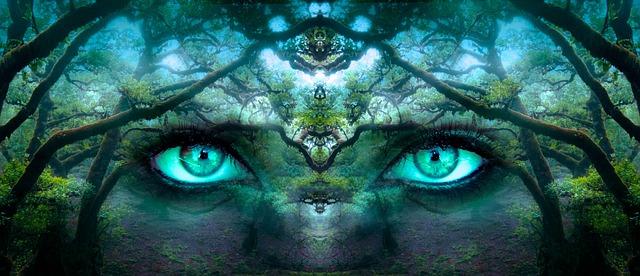Have you ever considered getting your eyebrows microbladed but wondered why there’s a requirement to steer clear of caffeine beforehand? It might sound peculiar at first, but there’s actually a good reason behind this precaution. When it comes to microblading, safety is paramount, and some common substances, like caffeine, can pose unexpected risks during the procedure. In this article, we will delve into the significance of this safety measure, providing a deeper understanding of the intricacies involved in microblading and the steps taken to ensure your well-being. So, grab a cup of decaf and let’s uncover why caffeine and microblading don’t mix!
1. Understanding the Precautions: Why is Caffeine a No-Go Before Microblading?
Before getting microblading done, it’s important to understand the precautions you need to take, including avoiding caffeine. Caffeine is a big no-go because it can affect the outcome of your microblading procedure.
Firstly, caffeine is a stimulant that increases your heart rate and blood pressure. This can lead to increased bleeding during the microblading process, making it difficult for your technician to achieve precise and accurate results. Additionally, caffeine can also interfere with the healing process by constricting blood vessels, which may impede the flow of oxygen and nutrients to the treated area.
To ensure the best possible outcome for your microblading experience, it’s advisable to avoid consuming caffeine for at least 24 hours before your appointment. This includes not only coffee, but also other beverages like energy drinks, black tea, and sodas that contain high amounts of caffeine. Substituting your usual caffeinated drinks with herbal teas or water can help keep you hydrated and promote a healthier healing process.
Lastly, don’t forget that microblading is an investment in your appearance and it’s essential to follow the pre-care instructions provided by your technician. By avoiding caffeine, you will minimize any potential risks or complications and give your beauty technicians the best possible canvas to work on. So, put that cup of joe aside and prepare yourself for flawless brows!

2. The Importance of Caffeine Restriction: Ensuring a Safe Microblading Procedure
Before undergoing a microblading procedure, it is crucial to understand the importance of caffeine restriction. Caffeine is a stimulant that can affect the body in various ways, and during the healing process after microblading, its consumption may hinder the desired results. Here’s why you should consider cutting back on caffeine before your session:
1. Impedes the healing process: Caffeine constricts blood vessels, which can slow down the delivery of essential nutrients and oxygen to the treated area. This, in turn, may hinder the healing process and prolong recovery time. To ensure optimal healing and minimize any potential complications, it is recommended to avoid caffeine consumption in the days leading up to your microblading procedure.
2. Increases sensitivity and discomfort: Caffeine is known for its ability to heighten sensitivity. By indulging in caffeinated drinks, you may experience increased sensitivity during the microblading procedure, making it more uncomfortable than it needs to be. By restricting caffeine intake, you can help reduce sensitivity and ensure a smoother and more comfortable experience.

3. Unveiling the Risks: How Caffeine can Interfere with Microblading Safety
Microblading is a popular technique used to enhance the appearance of eyebrows. While it is generally considered safe, there are certain risks that individuals need to be aware of, especially when it comes to caffeine consumption. Here’s why the beloved morning coffee might interfere with the safety and success of your microblading procedure.
First and foremost, caffeine is known to act as a stimulant, increasing heart rate and blood pressure. This can lead to an increased risk of bleeding during the microblading process. Excessive bleeding can not only make it difficult for the technician to perform the procedure effectively but can also result in poor pigment retention. Therefore, it is essential to avoid consuming caffeine before your microblading appointment to ensure optimal results. Additionally, caffeine can also impact the healing process post-microblading, as it can disrupt sleep patterns, increase stress levels, and potentially prolong the recovery time. It is advised to limit caffeine intake in the days following the procedure to promote proper healing.
4. The Science Behind the Ban: Unraveling the Effects of Caffeine on Microblading Results
When it comes to microblading, caffeine is often considered to be a big no-no. But have you ever wondered why it’s recommended to steer clear of that cup of joe before your appointment? Let’s dive into the science behind the ban and unravel the effects of caffeine on microblading results.
1. Blood flow disruption: Caffeine is a known vasoconstrictor, meaning that it can narrow your blood vessels and reduce blood flow. This can pose a problem during microblading because it restricts the delivery of oxygen and nutrients to the skin. As a result, the healing process may be slower and less efficient, potentially affecting the final outcome of your microblading treatment.
2. Increased sensitivity: After microblading, your skin becomes more sensitive and prone to irritation. Caffeine can exacerbate this sensitivity, making the recovery period more uncomfortable than necessary. It may also increase the risk of swelling, redness, and inflammation, which could compromise the overall appearance of your freshly-inked brows. So, it’s best to avoid that morning espresso to ensure optimal healing and desirable results.
5. Navigating the Healing Process: How Caffeine Hinders Proper Skin Recovery after Microblading
When undergoing the healing process after microblading, it is essential to properly navigate the do’s and don’ts to achieve optimal results. Surprisingly, one culprit hindering proper skin recovery is caffeine. While many of us rely on that morning cup of joe to kickstart our day, it may be wreaking havoc on our freshly microbladed brows.
Caffeine can adversely affect the healing process by constricting blood vessels, thus reducing the flow of oxygen and nutrients to the skin. This can slow down cell regeneration and delay the natural healing process. Additionally, caffeine is a diuretic, meaning it increases urinary output and consequently dehydrates the body, including the skin. Skin that lacks adequate hydration can lead to dryness, itching, and peeling, which is something we definitely want to avoid post-microblading. To ensure proper skin recovery, it is essential to limit or avoid caffeine consumption during the healing period. Opting for herbal teas or decaf alternatives can be a suitable substitute, allowing the skin to recover without any unnecessary hindrances.
7. Expert Advice: Tips and Tricks to Help You Caffeine Detox before Microblading
Before undergoing a microblading procedure, it’s crucial to detox your body from caffeine to ensure optimal results. Caffeine can affect the healing process and potentially interfere with the success of the treatment. Here are some expert tips and tricks to help you successfully detox from caffeine before your microblading appointment:
- Gradually reduce caffeine intake: Instead of quitting caffeine cold turkey, gradually decrease your consumption over a period of several days. This will help avoid withdrawal symptoms such as headaches and fatigue.
- Hydrate: Staying hydrated is essential during a caffeine detox. Drinking plenty of water will help flush out toxins and aid in the detoxification process.
- Replace caffeine with herbal teas: Opt for herbal teas such as chamomile or peppermint to satisfy your need for a hot beverage. These soothing drinks can help relax your mind and body without the caffeine boost.
- Get enough sleep: Lack of caffeine may initially make you feel tired, so make sure you prioritize getting enough rest. Aim for seven to nine hours of quality sleep each night to boost your energy levels naturally.
Detoxing from caffeine before microblading is essential to ensure the best possible outcome. By following these expert tips, you will be able to rid your body of caffeine and create the ideal environment for successful microblading. Remember, preparation is key for achieving beautiful and long-lasting results!
8. Embracing the Best Results: Why Committing to Caffeine Abstinence is Worth It for Microblading
When it comes to getting the best results from your microblading experience, making certain lifestyle adjustments can play a crucial role. One such adjustment that might surprise you is giving up caffeine prior to your microblading appointment. While it may seem like a small sacrifice, the benefits it brings to the table are significant. Here’s why committing to caffeine abstinence is totally worth it for microblading:
- Reduces Risk of Bleeding: Caffeine is known to dilate blood vessels, which can increase the risk of bleeding during and after the microblading procedure. By abstaining from caffeine, you allow your blood vessels to constrict, lowering the chances of bleeding and ensuring a cleaner, more precise outcome.
- Enhances Healing Process: Microblading involves creating tiny incisions in the skin, and one of the key factors for successful healing is good blood circulation. Caffeine restricts blood vessels, potentially hindering the flow of oxygen and nutrients to the treated area. By eliminating caffeine, you promote better circulation, allowing the healing process to happen more effectively.
Now, we’re not saying you have to give up your daily cup of joe forever. But avoiding caffeine for at least 24 hours prior to your microblading appointment can significantly contribute to achieving the best possible results. Remember, microblading is an investment in your appearance, and by making small sacrifices like this, you’re setting yourself up for stunning, long-lasting brows that you’ll love.
Frequently Asked Questions
Q: Why can’t you have caffeine before microblading?
A: Caffeine and microblading may not be the best combo due to safety precautions. Let’s take a deeper look.
Q: What is microblading exactly?
A: Microblading is a semi-permanent cosmetic procedure that enhances your eyebrows by creating tiny, hair-like strokes using a specialized tool and pigments.
Q: How does caffeine come into play with microblading?
A: Caffeine, although beloved by many, can heighten sensitivity and blood flow in the body. This can pose some risks when undergoing microblading.
Q: What are the safety precautions to consider?
A: During microblading, a numbing cream is applied to minimize discomfort. However, caffeine can interfere with the numbing process, potentially causing more sensitivity and pain.
Q: What happens when caffeine increases blood flow?
A: When you consume caffeine, it stimulates blood vessels, causing them to expand and increase blood flow. This can be problematic during microblading as it may lead to excessive bleeding during the procedure.
Q: How does caffeine affect the healing process?
A: After microblading, the healing process is crucial for achieving desired results. Caffeine can hinder this process by constricting blood vessels, slowing down proper healing and possibly affecting pigment retention.
Q: Are there any restrictions on caffeine consumption before microblading?
A: To ensure minimal risks and optimal results, it is generally recommended to avoid consuming caffeine for at least 24 hours prior to your microblading appointment.
Q: Can I have decaffeinated beverages instead?
A: Though decaffeinated beverages have less caffeine, it’s still best to abstain from them as they too can impact blood flow and potentially affect the procedure.
Q: Are there any alternatives to caffeine?
A: Absolutely! Instead of caffeine, opt for hydrating herbal teas, like chamomile or peppermint, which can help calm your nerves without the negative effects of caffeine.
Q: What should I do if I accidentally had caffeine before my microblading appointment?
A: No worries! If you slipped up and had caffeine, it’s crucial to inform your microblading technician beforehand. They will assess the situation and guide you accordingly, taking any necessary precautions.
Q: How can I ensure a successful microblading experience?
A: Apart from avoiding caffeine, it’s important to follow any pre-care instructions provided by your microblading professional. Stay hydrated, get plenty of rest, and maintain a healthy lifestyle to support the healing process and achieve stunning results. Remember, safety first!
The Conclusion
In conclusion, it’s important to understand the safety precautions associated with microblading and why caffeine should be avoided prior to the procedure. By refraining from consuming caffeinated beverages or supplements, you’ll ensure a smoother and safer experience. Caffeine can increase sensitivity, leading to potential discomfort during the process. Moreover, it can also result in excess bleeding, making it harder for the pigment to adhere properly and achieve desired results. To make the most out of your microblading session, it’s best to steer clear of caffeine beforehand. Remember, the goal is to achieve stunning brows with minimal discomfort, and following these precautions will help you achieve that effortlessly.






